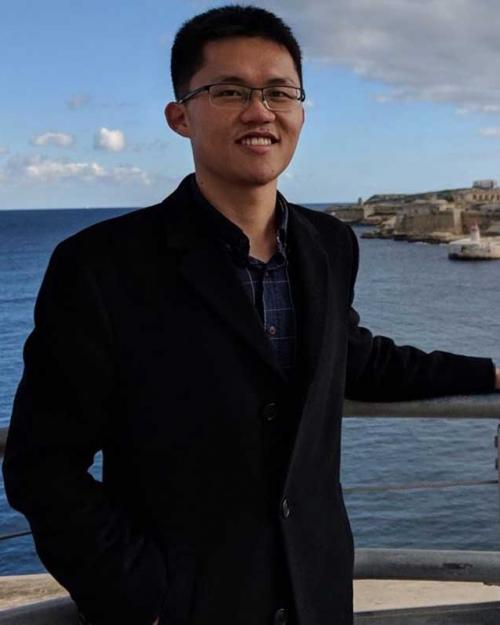Lingzi Zhuang is a doctoral candidate in linguistics with a minor in cognitive science from Maanshan, a small city in Anhui, China, and Shanghai. After earning an undergraduate degree at Columbia University, he chose to pursue further study at Cornell due to the linguistics program, program offerings, and feeling of community.
What is your area of research and why is it important?
I do research in semantics and pragmatics, which is jargon for saying that I’m interested in how we as users of natural language can “mean” certain things (semantics) and how we “mean” these things in different contexts of use (pragmatics). Natural language semantics and pragmatics are important because they allow us to study a core area of human capacity—namely, how we do, and do not, use systems of linguistic symbols to convey meaning.
What are the larger implications of this research?
I see linguistics as a “central” science in the larger field of behavioral and social sciences. Linguistic behavior in general—and semantics/pragmatics in particular—provides a channel both “inwards” into the workings of the human mind and “outwards” to the ways individual human beings interact with and influence other human beings and the society at large. If you think about it, language IS the medium that makes our minds intelligible to each other.
What does it mean to you to have received the Hsien and Daisy Yen Wu Scholarship?
It is certainly an honor to have my research recognized as valuable in this special way—especially since a lot of my work focuses on less studied/represented languages of China and East Asia. Practically, the award certainly helps cover some of the costs associated with working with native speakers halfway across the world.
What will this award allow you to do that you otherwise might not have been able to?
The award allows me to further pursue a community-based project where my colleagues and I develop novel language teaching resources for Tibetan.
What are your hobbies or interests outside of your research or scholarship?
I run and bike recreationally, and would occasionally sing tenor in a choir, read theology and intellectual history, or do things that betoken a railfan.
Why did you choose Cornell to pursue your degree?
Cornell is a great fit for my theoretical and areal interests in linguistics. I especially benefit from the wide range of language and regional studies offerings (having been a longtime fan of the LRC). Also (despite the Ithacan weather) the community feeling both at work and in life in Ithaca is really quite precious.
Read the story on the Cornell University Graduate School website.




